Types of Water Heaters:
Which is Best for Lehi Homeowners?
When it comes to selecting a water heater in Lehi, the task can be daunting due to the wide range of options available. From traditional tanks to solar units and tankless models, each type offers varying levels of energy efficiency and hot water capacity. To help you make a well-informed decision that suits your family's specific requirements, our detailed guide provides an extensive review of each water heater type. By delving into the information provided below, you will gain the knowledge necessary to confidently choose the perfect water heater for your needs. Remember to carefully consider the distinct advantages and disadvantages associated with each type before reaching a final decision.

Traditional Storage Tank Water Heaters
Tank-style water heaters are a popular choice for efficiently heating and storing water in insulated tanks. They utilize gas, electric, or oil as an energy source to heat the water. These units provide a continuous supply of hot water, making it readily available whenever you need it with just a simple turn of the tap.
Pros:
Lower cost: Tank-style water heaters are generally more affordable upfront compared to other types of water heaters.
Longer warranty periods: They often come with longer warranty periods, providing added protection and peace of mind.
Ease of maintenance: Maintenance for tank-style water heaters is typically straightforward and doesn't require complex procedures.
Cons:
High operating expenses: Traditional water heaters are known for their lower energy efficiency, resulting in higher operating expenses over time.
Limited capacity: The tank size determines the amount of hot water available, which can lead to a shortage during peak usage periods.
Risk of water damage: There is always a risk of water damage if the tank develops a leak or fails, potentially causing significant damage to the surrounding area.

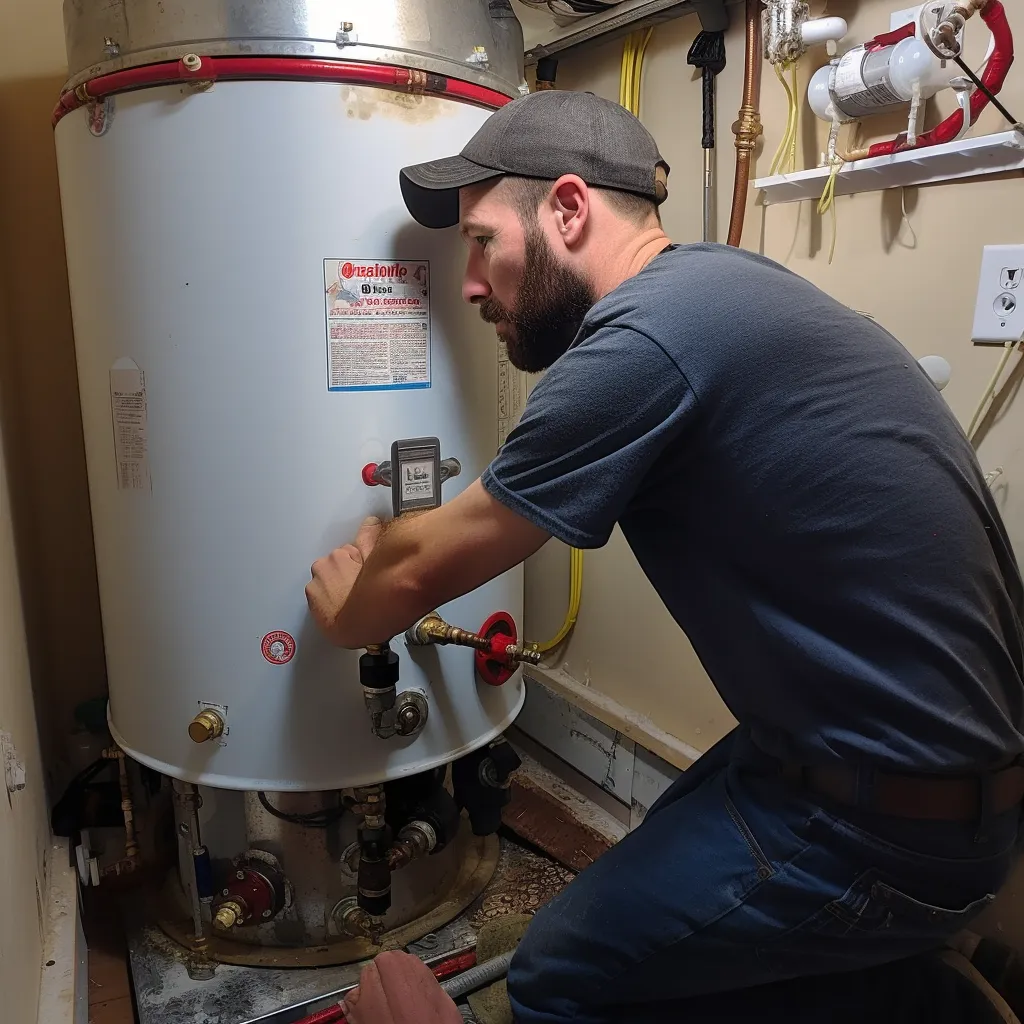
Tankless Water Heaters
Tankless water heaters offer a modern and efficient alternative to traditional water heaters. Unlike tank-style models, which store and heat water continuously, tankless units heat water on demand, resulting in energy savings and space efficiency. Although they may have a higher upfront cost, the long-term utility bill savings make up for it. Here are the key advantages and disadvantages of tankless water heaters:
Pros:
Easy installation: Tankless water heaters have a compact design that simplifies the installation process.
High energy efficiency: These units consistently deliver low monthly energy bills due to their energy-saving capabilities.
Continuous hot water supply: As long as there is demand, tankless water heaters ensure an uninterrupted flow of hot water.
Longer lifespan: Tankless water heaters have a longer life expectancy, making them a smart and cost-effective investment.
Cons:
Higher initial cost: Compared to traditional water heaters, tankless models come with a higher upfront cost.
Venting complexities in small spaces: In cramped areas, venting for tankless water heaters can be more challenging.
Limited capacity for high-demand applications: Tankless units may have limitations when it comes to meeting the needs of high-demand applications.
Heat Pump Water Heaters
Enjoy the benefits of efficient and affordable hot water with a heat pump water heater, known for its high efficiency and cost-effectiveness. These water heaters utilize a small compressor to extract heat from the air, making them an energy-efficient and environmentally friendly option. You can reduce utility bills and contribute to sustainability by harnessing renewable energy. Even during power outages, heat pump water heaters ensure a continuous supply of hot water. However, it's important to consider the higher initial cost, as well as the ventilation and space requirements for installation. Additionally, these water heaters may have a limited capacity, which can affect the availability of hot water per usage.
Pros:
Energy efficiency: Heat pump water heaters are highly energy efficient, resulting in reduced utility bills compared to traditional water heaters.
Renewable energy utilization: These water heaters harness renewable energy from the air, making them a sustainable and environmentally friendly option.
Continuous hot water during power outages: Heat pump water heaters can still provide hot water even during power outages.
Cons:
Higher initial cost: Heat pump water heaters generally have a higher upfront cost compared to traditional water heaters.
Ventilation and space requirements: Installation of heat pump water heaters may require additional ventilation and space.
Limited capacity: Heat pump water heaters may have a limited capacity, resulting in a lower availability of hot water per usage.


Heat Pump Hybrid Water Heaters
Heat pump hybrid water heaters offer a combination of the benefits found in both conventional storage tank water heaters and heat pump systems. They provide high efficiency and lower operating costs compared to traditional models. While they may require a higher initial investment, their superior functionality and effectiveness make them a worthwhile choice.
Pros:
Increased energy efficiency, leading to reduced utility bills.
Renewable energy utilization for sustainability.
Hot water availability during power outages.
Longer lifespan compared to traditional storage tank heaters.
Cons:
Higher initial cost compared to conventional storage water heaters.
Potential ventilation and space requirements that may pose installation challenges.
Limited capacity, resulting in a finite amount of hot water available for each use.
Risk of water damage if the tank fails or leaks.
Solar Powered Water Heaters
Solar-powered water heaters are an ideal choice for those looking to decrease their monthly utility expenses and utilize renewable energy. These systems come in two main types: active and passive. With solar-powered water heaters, you can take advantage of the sun's energy to heat water, providing a simple and cost-effective approach to saving money. Here are the key advantages and disadvantages of using solar-powered water heaters.

Active Systems:
Active solar-powered water heaters use pumps to transfer hot fluid from the collectors to a storage tank. These systems are highly efficient and capable of generating substantial amounts of hot water. By employing active systems, you can maximize the collection of solar energy. Active solar-powered water heaters ensure an abundant supply of hot water for your household needs.
Passive Systems:
Passive solar water heaters utilize natural convection to transfer heated fluid from the collectors to a storage tank, effectively utilizing solar energy to heat water. These systems are known for their affordability in terms of installation and maintenance expenses. Although passive solar water heaters may not generate as much hot water as active systems, they offer a cost-effective and eco-friendly solution for fulfilling your hot water requirements. By harnessing solar power, these heaters provide an environmentally conscious approach to meeting your hot water needs.
Pros:
High efficiency leads to substantial cost savings on energy bills.
Uses renewable energy from the sun, reducing dependence on non-renewable resources.
Longer lifespan compared to traditional water heaters, ensuring long-term value.
Cons:
Initial cost is higher compared to traditional storage tank heaters, requiring a larger investment upfront.
Additional space and equipment requirements may complicate the installation process.
There is a risk of water damage if solar panels become faulty or damaged.

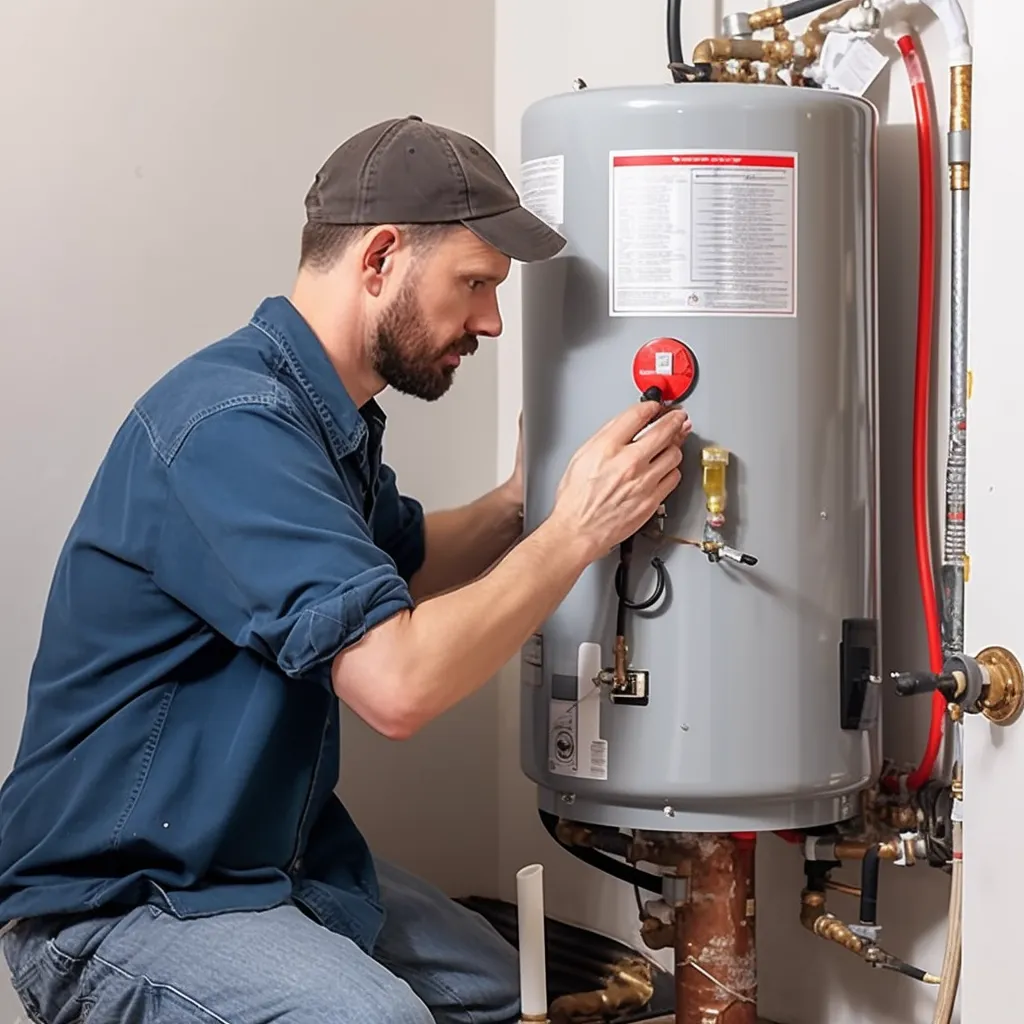
Point-of-Use Water Heaters
Point-of-use water heaters offer a convenient solution for accessing hot water instantly while being compact and efficient. They are particularly suitable for small spaces or for those who want to avoid the costs and inefficiencies associated with traditional storage tanks. By providing hot water directly at the point of use, these heaters eliminate the need for long pipe runs and minimize heat loss.
Pros:
High energy efficiency leads to lower monthly utility expenses.
Compact size allows for easy installation and maintenance in small spaces.
Longer lifespan compared to storage tank heaters.
Cons:
Higher initial cost and potential need for extra ventilation and installation space.
Lower hot water capacity, resulting in limited availability per use.
Higher risk of water damage due to tank failure or leaks in tankless heaters.
Water Heaters With Hydronic Boilers
Hydronic boilers are a highly efficient heating system that utilizes water instead of air to circulate heat throughout your space. They are capable of providing both hot water for domestic use and space heating, making them suitable for colder climates. Additionally, hydronic boilers can be paired with tank water heaters to meet your hot water needs more affordably.
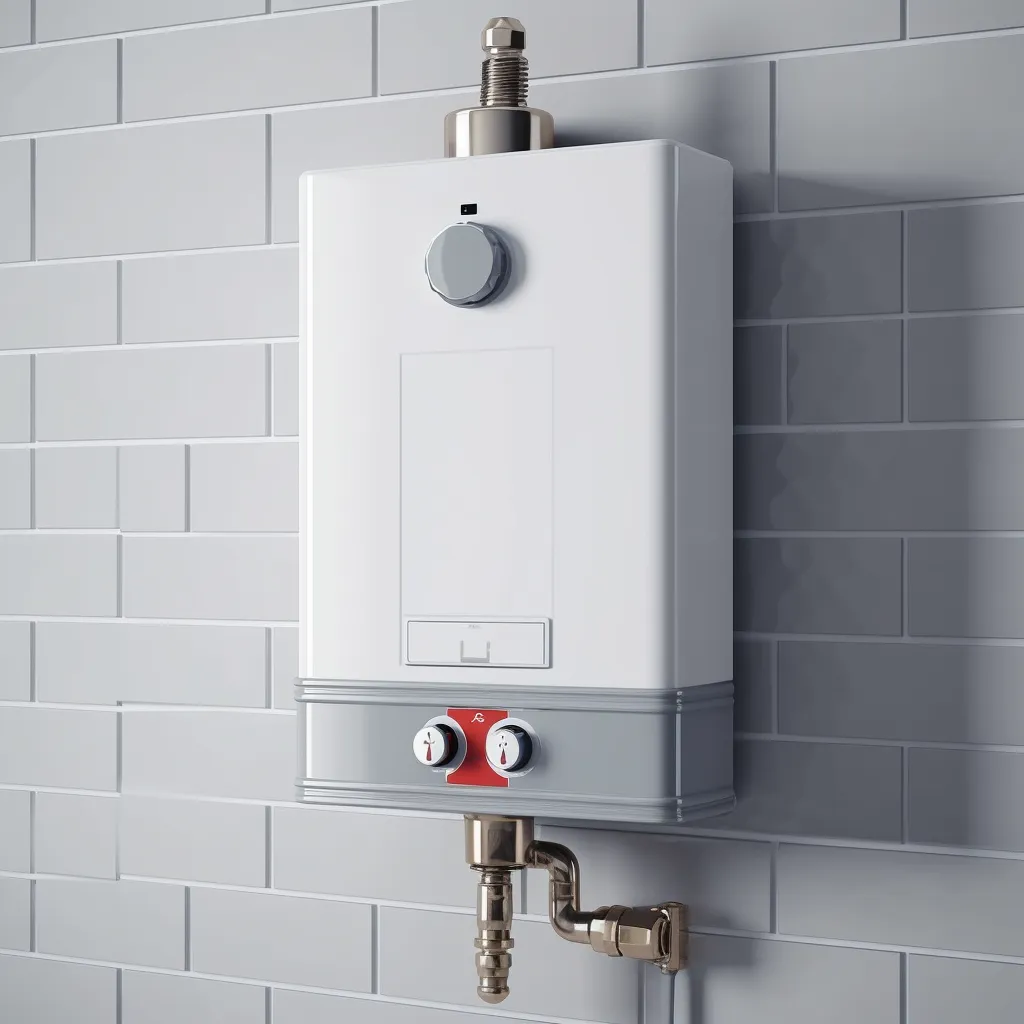
Pros:
High efficiency, leading to lower monthly utility bills.
Provides both space heating and domestic hot water.
Compact design for easy installation in tight spaces.
Longer life expectancy compared to traditional tank water heaters.
Cons:
Higher initial cost compared to traditional storage models.
Limited capacity, resulting in less hot water per use
Possibility of noise generation during operation.
Potential ineligibility for certain utility rebates or incentives.
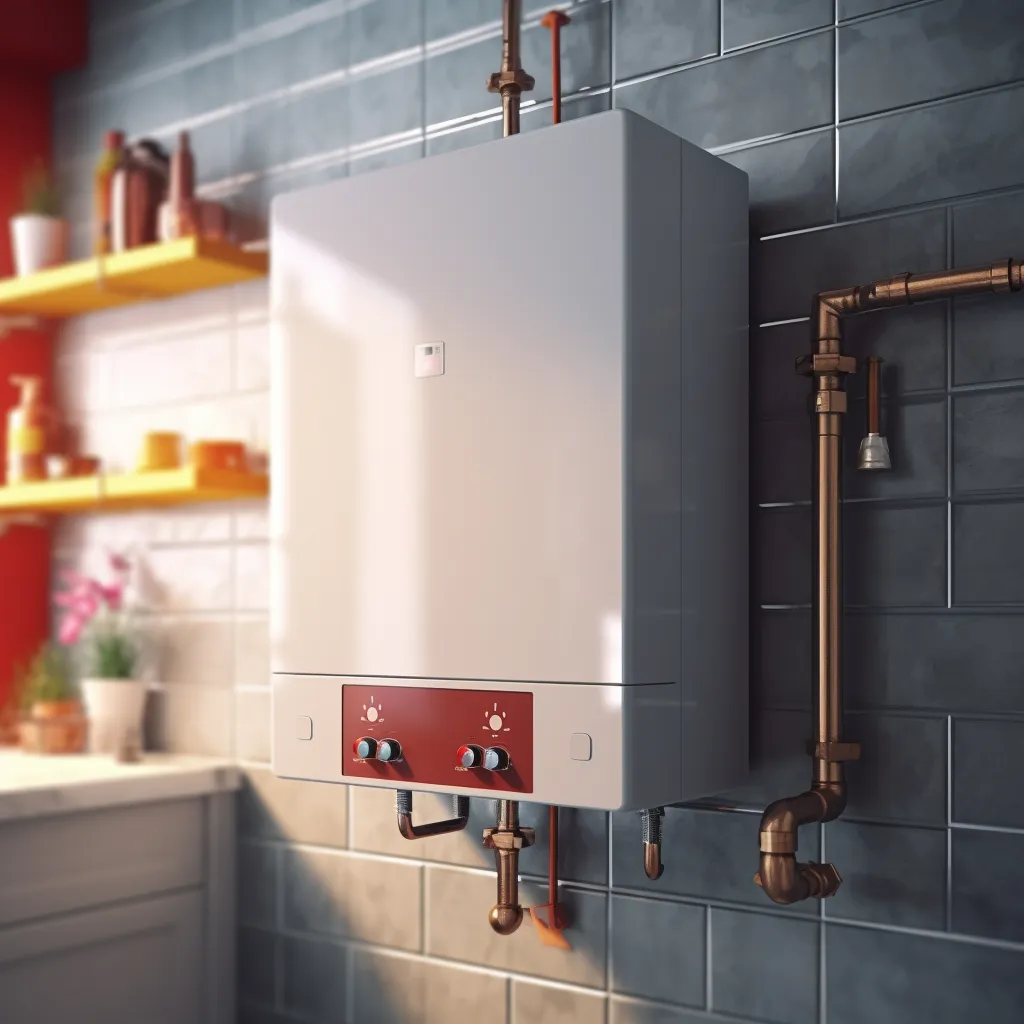
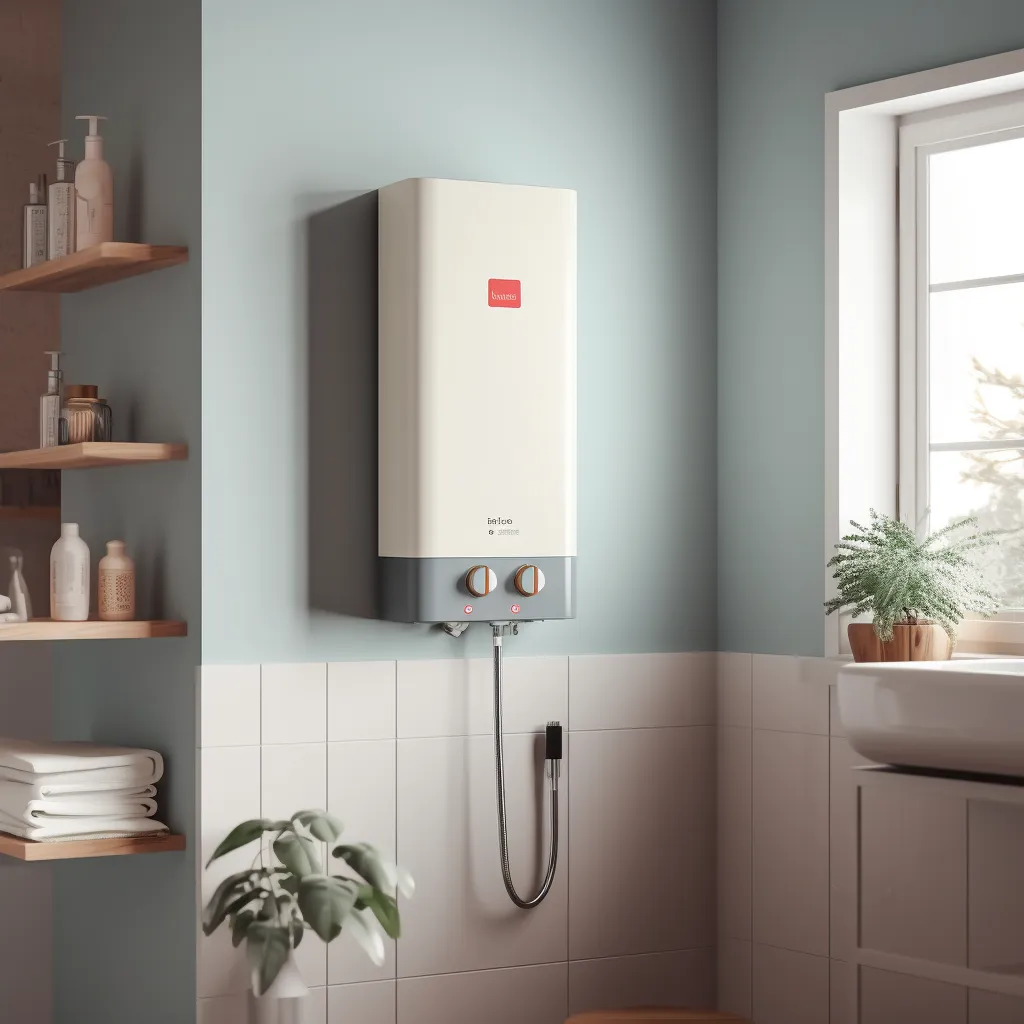
Smart Water Heaters
Upgrade your water heating system with smart water heaters, the cutting-edge technology for efficient hot water production. With Wi-Fi enabled thermostats, you can easily manage your hot water consumption and expenses from anywhere. Take control of temperature settings and customize them according to your needs, all through your smartphone.
Pros:
Remote control via Wi-Fi enabled thermostat, allowing convenient management of the water heater from smartphones or other devices.
Energy-saving modes, such as vacation mode, help reduce monthly energy bills.
Compact size facilitates easy installation and maintenance, even in tight spaces.
Longer life expectancy compared to traditional storage tank heaters.
Cons:
Higher cost compared to traditional storage water heaters.
Some utility rebates or incentives may not apply.
Additional software updates may be required for compatibility with newer devices.
Potential security risks if the Wi-Fi connection is not secure.
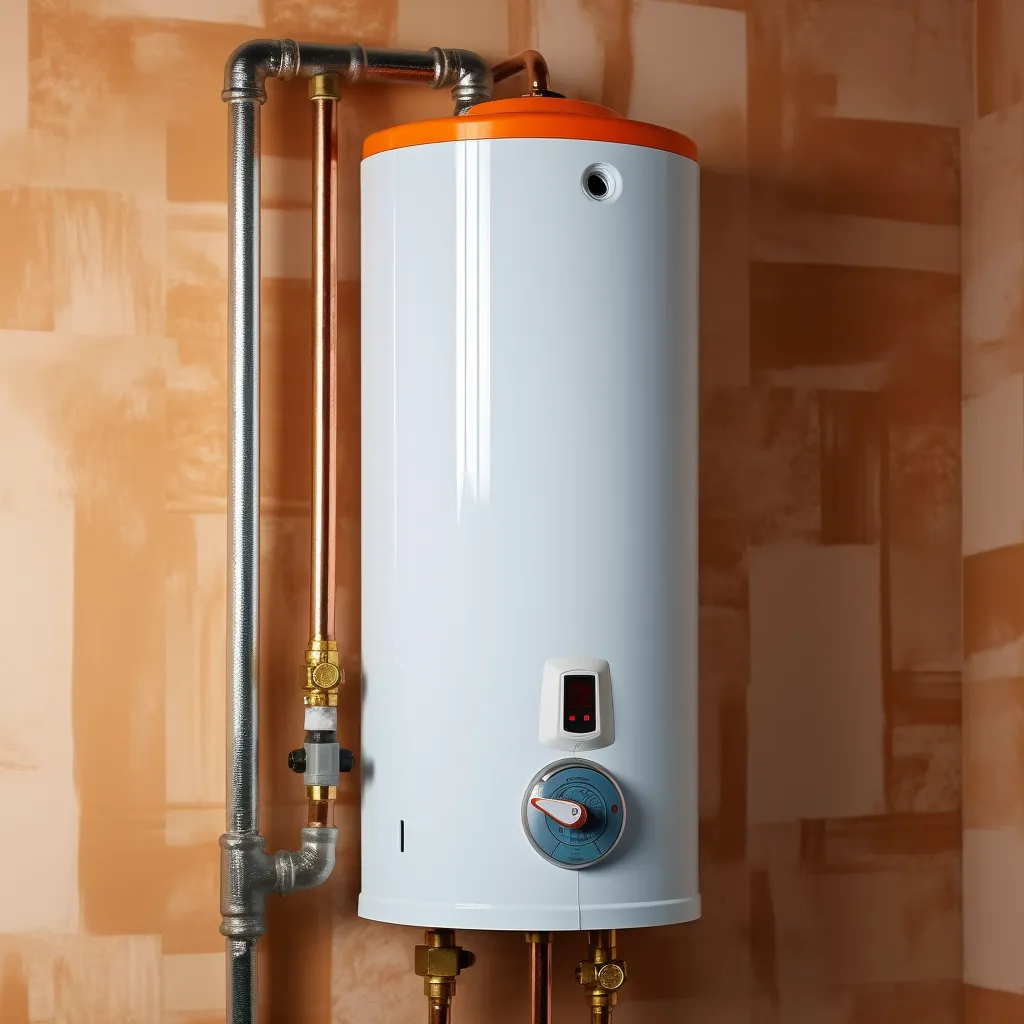
Condensing Water Heaters
Condensing water heaters combine the benefits of tankless and traditional storage tank water heaters. These cutting-edge models use advanced technology to extract heat from exhaust gases, resulting in improved efficiency and cost savings. By harnessing this otherwise wasted heat, condensing water heaters deliver superior performance and increased energy efficiency.
Pros:
High Energy Efficiency: Condensing water heaters boast high energy efficiency, leading to reduced utility bills and long-term savings.
Extended Lifespan: Compared to traditional tank water heaters, condensing models have a longer lifespan, providing more value for your investment.
Hot Water Availability During Power Outages: Condensing water heaters ensure a continuous supply of hot water even when there's a power outage, offering convenience and comfort.
Cons:
Higher Initial Cost: Condensing water heaters tend to have a higher upfront cost than traditional models, requiring a larger initial investment.
Space and Ventilation Requirements: These innovative heaters may have specific space and ventilation requirements, which could limit their installation options.
Limited Hot Water Capacity: Condensing water heaters may have a restricted hot water capacity compared to conventional tank models, potentially posing a challenge for households with high hot water demands.
Risk of Water Damage: In the event of a tank failure or leakage, condensing water heaters carry the risk of water damage, requiring prompt attention and maintenance.
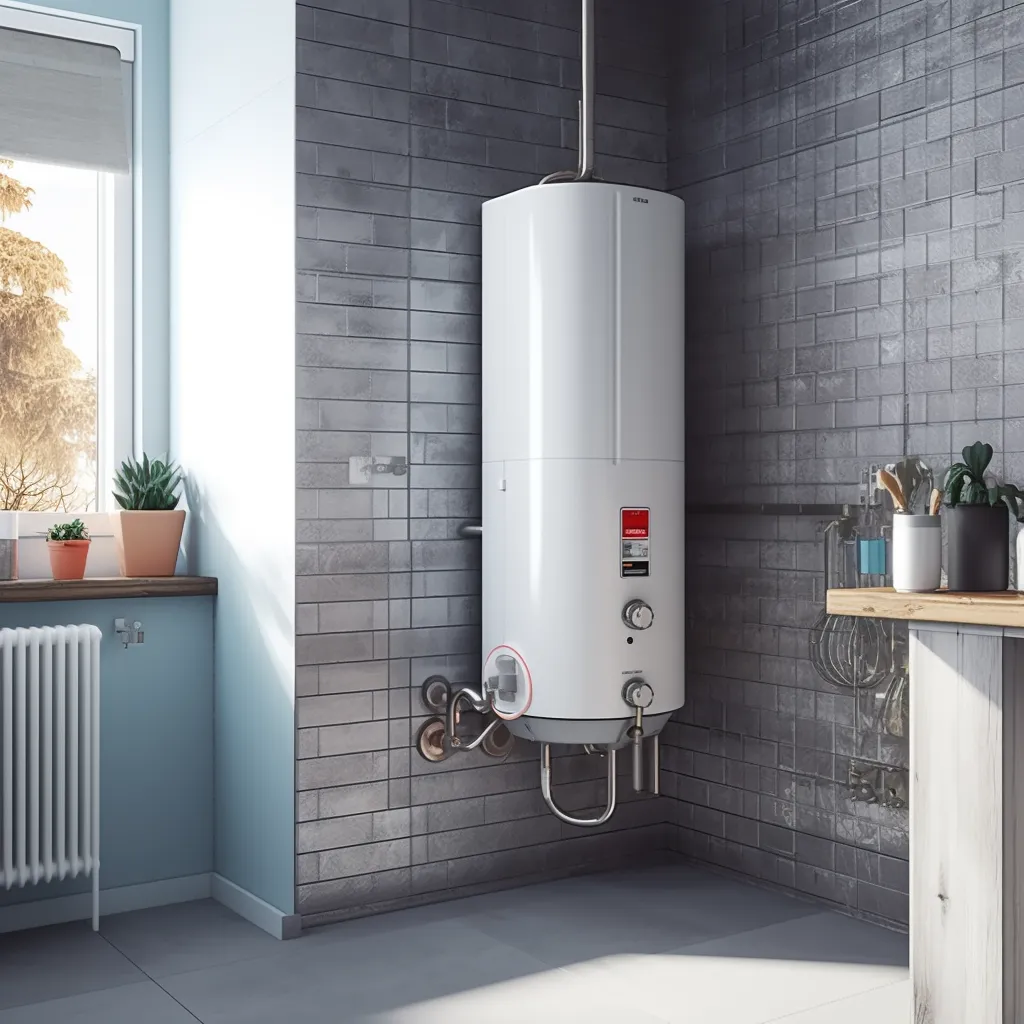
How to choose the right
water heater for your home
Choosing the right water heater size is crucial for achieving optimal hot water supply. Undersized water heaters can lead to a lack of sufficient hot water, leaving you in discomfort, while oversized ones can be wasteful in terms of energy consumption and occupy unnecessary space in your home. To identify the ideal water heater size that suits your family's requirements, it's important to take into account your lifestyle and daily hot water usage. By carefully considering these factors and selecting the appropriate size, you can ensure cost-effective home comfort and an abundant supply of hot water that perfectly matches your needs.
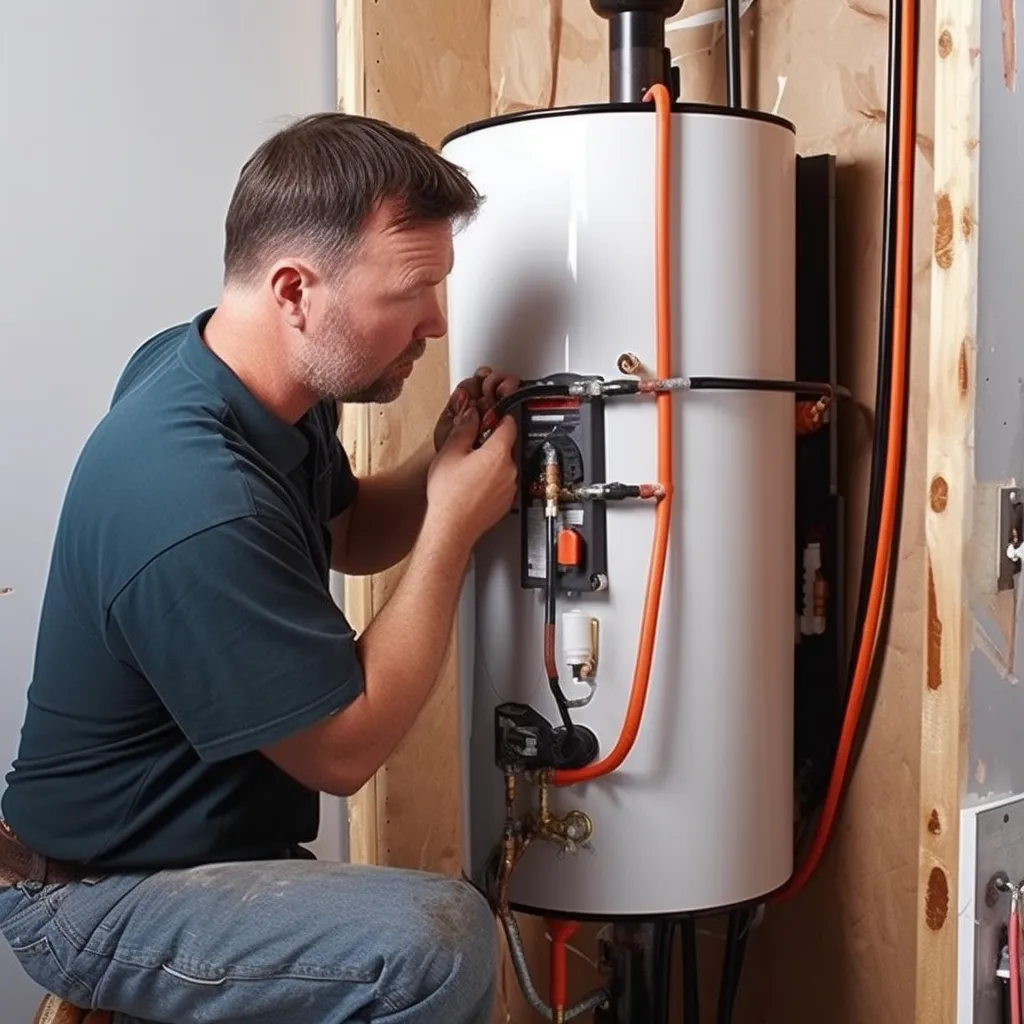
When should you
replace your water heater?
Having a properly functioning water heater is essential to maintain the efficiency of your home's plumbing system. It plays a vital role in providing hot water for everyday tasks like showering, dishwashing, and laundry. Typically, water heaters last for about 10-15 years. If your current water heater has already surpassed or reached this lifespan, it's advisable to start thinking about investing in a replacement. Upgrading to a newer model guarantees a dependable hot water supply and reduces the risk of encountering problems or expensive repairs commonly associated with older units.
Signs it's time to replace your water heater:
Tank leakage: If you notice any leaks or puddles around your water heater, it's a clear indication that your tank is compromised and may need replacement.
Strange noises: Unusual noises coming from your water heater, such as banging or rumbling sounds, could be a sign of sediment buildup or a failing heating element. These issues might warrant a replacement.
Discolored and rusty hot water: If your hot water appears brownish or has a metallic smell, it could be a result of corrosion inside your water heater. This could mean that your unit is deteriorating and might need to be replaced.
Lack of hot water: If you consistently experience insufficient hot water or find that it runs out quickly, even after normal usage, it could be a sign that your water heater is no longer functioning efficiently and needs replacement.
Fluctuations in water temperature: Inconsistent water temperature, where the water goes from hot to cold or vice versa unexpectedly, could indicate a problem with your water heater's thermostat or heating elements. Replacing the unit might be necessary to resolve this issue.
High energy bills: If you've noticed a significant increase in your energy bills without any other explanation, it could be due to an inefficient water heater. Older units tend to become less energy-efficient over time, and replacing them with a newer, more energy-efficient model could help reduce your energy costs.
Installing a new water heater may come with a considerable cost, but the long-term advantages of enhanced energy efficiency and dependable performance make it a valuable investment. An experienced plumber, holding the necessary license, can assess your individual requirements, suggest the appropriate water heater type and size, and guarantee a proper installation that maximizes efficiency and durability.
Maintenance tips for
water heater efficiency
Regular maintenance is crucial for optimal performance and longevity of your water heater. It not only helps in preventing problems but also ensures efficient operation. By adhering to basic maintenance procedures, you can ensure the smooth functioning of your water heater, enjoy cost-effective hot water, and enhance its reliability.
Benefits of hiring a licensed plumber
to replace your water heater
When it comes to replacing your water heater, it's important to weigh the options between a DIY approach and hiring a professional plumber. While the DIY route may seem enticing, there are several compelling reasons why enlisting the services of a qualified plumber is a wise decision:
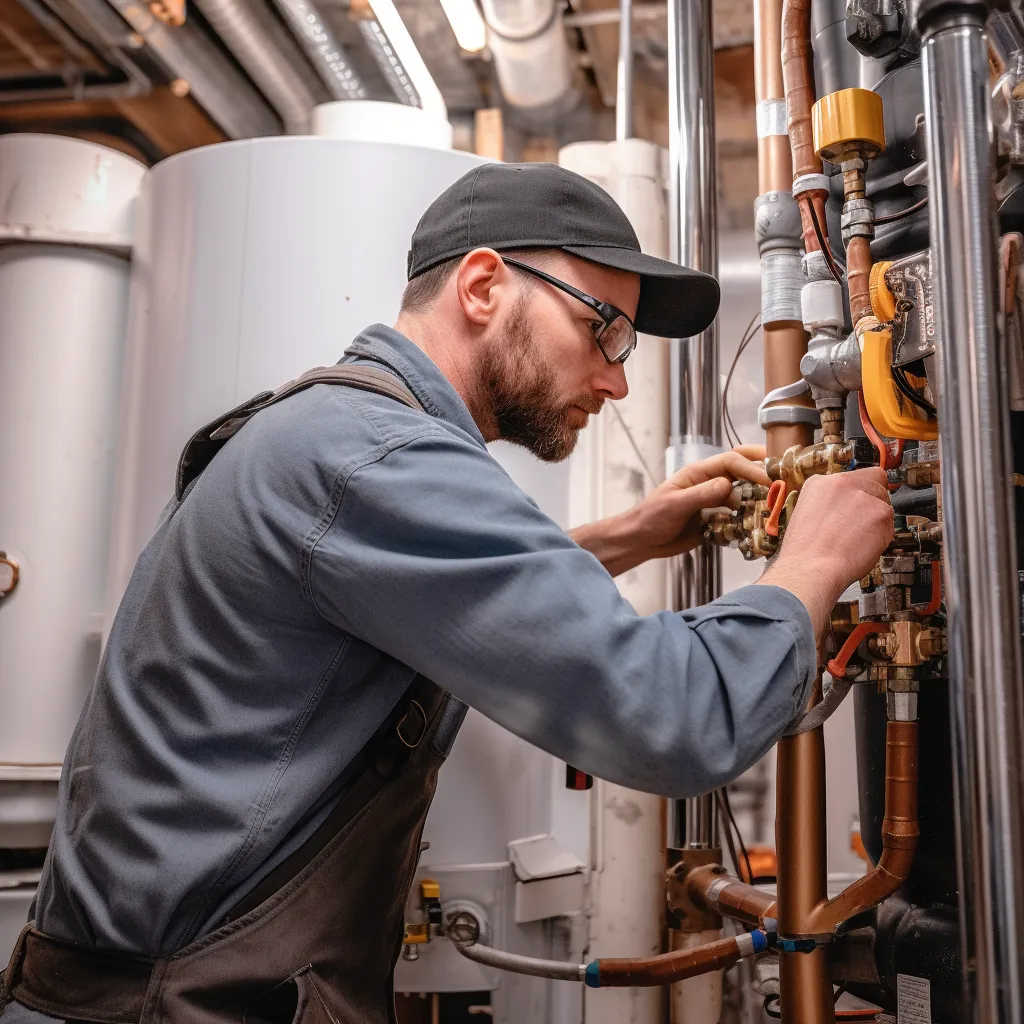
Expertise and Training: Professional plumbers possess the necessary training and knowledge to handle water heater installations with expertise. They can ensure that the installation is carried out safely and efficiently, offering valuable advice on the ideal type and size of water heater that suits your specific needs.
Compliance with Building Codes and Safety Standards: Licensed plumbers guarantee that your water heater installation adheres to local building codes and safety standards. By entrusting the job to a professional, you can rest assured that all the necessary regulations and guidelines are followed, minimizing potential hazards or legal issues.
Swift Problem Identification and Resolution: Professionals are adept at swiftly identifying and resolving any issues that may arise during the installation process. Their experience equips them with the skills to troubleshoot and address complications efficiently, ensuring a smooth and hassle-free installation experience for you.
Proper Tools and Equipment: Plumbers come equipped with the proper tools and equipment required for effective water heater installation. They possess the specialized tools and expertise necessary to handle the task effectively, eliminating the need for you to invest in expensive equipment or risk using inadequate tools.
When considering water heater replacement, it is highly recommended to hire a licensed plumber. Doing so offers several advantages such as time and cost savings, as well as preventing any potential problems from arising.
Contact Us
GET IN FULL TOUCH
PHONE: (801) 877-1421
EMAIL:
nathan@waterheaterlehi.com
Solutions Home Services
74 W 1625 S, Lehi, UT 84043
